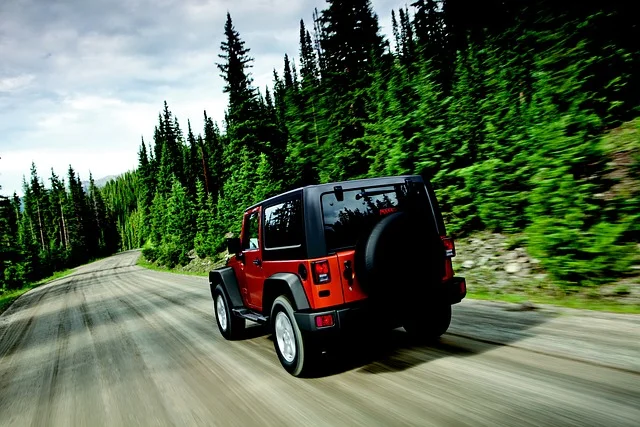Do Jeep Wranglers Hold Their Value? What To Know About Resale & Depreciation

The Jeep Wrangler delivers a unique combination of open-air freedom and off-road capability. It’s an in-demand vehicle with a loyal following and a lot of activity on the second-hand market. Whether you already have a Wrangler or are considering buying one, knowing about resale value and depreciation can significantly impact your ownership plans. With this in mind, let’s find the answer to the question, “Do Jeep Wranglers hold their value?”
Understanding the Basics: Do Jeep Wranglers Hold Their Value?
Let’s get some fundamentals out of the way. Car depreciation refers to the way a vehicle loses monetary value over time. As soon as a new car is driven off the dealership lot, its resale value begins dropping due to several factors. With each passing year and added miles on the odometer, a car becomes worth less money compared to current pricing and demand in the automobile market.
This gradual decline in resale value is inevitable and occurs at varying rates depending on the make, model, mileage, condition, options, and even vehicle color. Some cars depreciate more slowly than others. This can be due to rareness or collectability. But outside of these exceptions, the typical car will not be worth the same amount years later as the day it was purchased new.
DOWNLOAD THE FREE APP
The CoPilot car shopping app is the smartest way to buy a car. Get a curated list of the best cars for sale in your area, as well as notifications if a similar vehicle is listed nearby at a lower price. CoPilot is the smartest way to shop for used cars.
Yet, in today’s market, there’s another factor at play: the after-effects of new car shortages related to the COVID-19 pandemic. When automobile manufacturers shut down car factories during the early stages of the outbreak, consumers turned to used cars, causing prices of pre-owned vehicles to spike. What made matters worse was the suppliers couldn’t provide essential components (especially for semiconductors) once production resumed, causing further strains on car availability.
It all adds to a car market still suffering from inflated prices. CoPilot Price Pulse tracks the specifics, which isn’t good news for Jeep buyers.
Data shows that the average used Jeep (reflecting all models) sells for $29,466, which is $3,986 (or 15%) higher than original forecasts. In other words, if the pandemic and resulting supply chain issues hadn’t occurred, the typical pre-owned Jeep would sell for $25,480. The one shining light is that prices are down from the peak of $32,187 in February 2022.
This positive news for consumers also extends to the Jeep Wrangler. Since 2022’s highs, the average selling price for a used Wrangler Unlimited has dropped by $4,399. There’s a $2,624 decline for the standard Wrangler.
Defying the Rules: Do Jeep Wranglers Hold Their Value?
According to CNBC, the average five-year-old car depreciated by 33% in 2022. A year earlier, the drop in value was 40% (a sign of how tight vehicle supplies have made used cars more valuable). But these numbers don’t apply to the Jeep Wrangler, with five-year depreciation rates hovering in the 7-9% range (depending on the Wrangler model).
This is great if you already have a Wrangler in the driveway (your car is worth more), but it can be disappointing if you’re shopping for a used Wrangler (you’ll pay more).
THE JEEP WRANGLER YEARS TO AVOID
The Jeep Wrangler is an icon loved by generations of drivers. We’ll share some Jeep Wrangler years to avoid keeping you out of the hot seat when purchasing an older model.
What Drives Jeep Wrangler Market Values?
Aside from the generally higher prices in the current market, an underlying appeal explains the Wrangler’s boosted value. Until the resurrection of the Ford Bronco, no other SUV offered old-school ruggedness with removable doors, a soft-top roof (or no roof at all), oversized tires, stout solid axles, generous ground clearance, and a decades-long pedigree of tackling off-road adventures. This Jeep is not only a throwback but an alternative to modern crossovers that focus more on car-like comfort than off-pavement capability.
But there’s more to the Wrangler’s mystique:
- Unique Style Stays Cool: The Wrangler’s exterior design honors a heritage from World War II Willys Jeeps.
- Numerous Customization Options: Personalizing a Wrangler is common for many owners, with endless bolt-on upgrades for added off-road performance and distinctive looks.
- A Close-Knit Owner Community: From the behind-the-wheel “Jeep Wave” greeting to fellow Jeep drivers to dedicated mass-attendance events, the Wrangler is part of a vibrant owner community. These connections help forge bonds among like-minded individuals.
- Capability: As other SUVs and crossovers shift focus towards family hauling and road manners, the Wrangler proudly carries the torch for off-road purists caring more about articulation and gear ratios than cupholders and leather upholstery.
Factors That Worsen Depreciation: Do Jeep Wranglers Hold Their Value?
While the Jeep Wrangler enjoys strong resale value, it’s not immune to depreciation hits. Certain factors can quicken a drop in resale value.
- High Mileage: Wranglers used for daily commuting or extensive road trips rack up mileage quickly. According to the Federal Highway Administration, the average American drives about 14,200 miles annually. Usage beyond this amount will increase depreciation, particularly if the car has more than 100,000 miles.
- Poor Maintenance: Vehicles put through the rigors of off-road use require extra upkeep. Failure to ensure a Jeep Wrangler is in tip-top shape (including recommended maintenance) is a turn-off to buyers. Anything from worn upholstery to oil leaks is a sign that a Wrangler hasn’t been well cared for, bringing down value.
- Accident Damage: Body damage, poorly completed accident repairs, or repainting can signal a Wrangler that’s led a hard life. Frame or undercarriage damage raises even worse doubts, leading buyers to be concerned about expensive problems down the road.
- Undesirable Equipment: The wrong configuration can also impact a Wrangler’s value. For instance, a soft top in a northern climate will be less appealing than a hard top. The same can be said for the lack of air conditioning in areas with extreme summers.
AI-ASSISTED CAR SHOPPING
Never miss out on the best car, never overpay, and never get taken advantage of. Download the CoPilot app to see the magic of AI-assisted car shopping.
A Note about Customization and Resale Value
As mentioned, many Jeep Wrangler owners customize their vehicles. These aftermarket add-ons include lift kits, oversized off-road tires, elaborate rock-crawling gear, and appearance upgrades. Generally, most of these modifications fail to deliver a return on investment at trade-in time. Instead, these personalizations narrow appeal, as prospective buyers may prefer their own take on customizations and want a “blank slate” to modify.
Get a Curated List of the Best Used Cars Near You
The CoPilot car shopping app is the easiest way to buy a car. Tell us what you’re looking for and we’ll search the inventories of every dealership in your area to make you a personalized list of the best car listings in your area.
Only looking for newer models? CoPilot Compare is the search engine for nearly-new cars. Only see cars five years or newer with low mileage — CoPilot Compare is the best way to find off-lease, early trade-in, and CPO cars.
The best part? CoPilot is built using the same technology that dealerships use to buy and sell their inventories, so we have more info on each vehicle than competitors. CoPilot doesn’t work with dealerships, so there are no sponsored posts or other shady practices — just the most info on the best cars. Check out our About Us page to see how CoPilot works.








